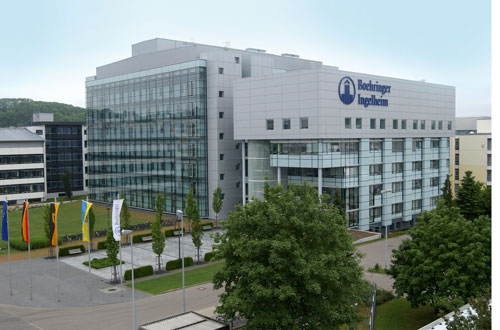
Boehringer Ingelheim has forged a $226m alliance with UK-listed biotech PureTech Health to develop a new approach to cancer immunotherapy.
The deal includes an upfront payment of $26m, plus $200m in milestones, for rights to a lymphatic-targeting technology that Boehringer will use alongside one of its own immuno-oncology candidates.
The delivery technology is designed to reduce systemic absorption, allowing medicines to be taken directly from the gastrointestinal tract into the blood vessels that serve the lymphatic system and from there to the mesenteric lymph nodes, which are closely involved with programming white blood cells in the adaptive immune response.
That route avoids first pass metabolism in the liver that can rapidly reduce the activity of administered drugs after dosing. In theory, that could allow drugs to be given at a lower dose – potentially reducing side effects – without compromising their biologic activity.
According to PureTech, about 70% of immune cells are found in lymphatic tissues associated with the GI tract, and targeting immunomodulatory agents to this source could “potentially tune both systemic and local immunity.”
Under the terms of the agreement PureTech will carry out initial research on the behalf of Boehringer, with the German company taking over once candidates move into the development phase. Boehringer adds to an impressive list of big pharma partners for PureTech, joining the likes of Amgen, Johnson & Johnson, Eli Lilly, Pfizer and Roche.
The deal was announced as Boehringer reported a decline in 2018 revenues that stemmed mainly from pricing pressure on Spiriva (tiotropium), its top-selling drug for chronic obstructive pulmonary disorder (COPD) and asthma.
Total revenues fell 3% to €17.5bn ($19.8bn) last year from $18.1bn in 2017, with Spiriva falling 15% to €2.4bn due to a more competitive COPD marketplace, and despite solid growth for diabetes drug Jardiance (empagliflozin) and idiopathic pulmonary fibrosis (IPF) treatment Ofev (nintedanib).
Spiriva is now off-patent in most markets but has been buffered from the steep declines that generally follow from generic competition because of the complexities of showing equivalence to the delivery device – a factor that also held up generics to GlaxoSmithKline’s big-selling COPD drug Advair in the US.
Privately-held Boehringer has been trying to patients from Spiriva to new combination Spiolto (tiotropium/olodaterol), with some payer resistance, but in the meantime Jardiance and Ofev have taken up the slack.
Last year Jardiance grew 45% to €1.5bn, thanks in part to a new cardiovascular claim on the label, while Ofev climbed 29% to €1.1bn.
For the current financial year, Boehringer is expecting slight growth in net sales, but is also planning to ramp up its investments, including building it pipeline with a €3bn spend earmarked for Europe alone in the next five years.




